It was strange to think that a domestic withdrawing room, even one as ostentatiously furnished as Lady Blessington’s, was the acknowledged centre of all that was considered brilliant in literature and art in those days. But it was, and to be seen there was worth a thousand copies shifted in a week.
Ainsworth seemed quite comfortable in this new environment, although his stentorian Lancashire accent was as foreign there as my own by then fluent Cockney. I had long ago shed my original country voice, but that which had replaced it was just as coarse to the collective ear of the present company. But Ainsworth was a lawyer, and from money, albeit new money, and he understood the cultural codes in ways that I did not and never could. When I was first presented to miladi, I distinctly heard a foppish Frenchified voice, which I correctly identified as the famous (for being famous) Count d’Orsay himself, enquire if I were ‘properly housetrained.’
Lady Marguerite’s expression was enough to drown this discourtesy at birth. ‘More than you,’ my dear Alfred,’ said she, her Irish accent just breaking the surface of her words, a sparkle in her eye for me.
She was in her forties then, and quite magnificent, even more impressive in middle age than in the lovely splendour of her youth, judging by the portrait on the far wall. Like every other man in that room, I fell madly in love, but she was as unobtainable as any goddess, having eyes, I soon learned, only for d’Orsay. I was aware of him through his connections with Fraser’s, though I swear the man never wrote a word. I have heard it said that he contributed to the spirit of the magazine, but I remain unconvinced. He was supposedly a sculptor, but whether or not he was an artist he fancied himself a work of art, for his creativity was manifest mostly through his apparel. He was the undisputed king of the dandies now Brummell was in exile. I always thought he dressed like a Parisian pox doctor’s clerk.
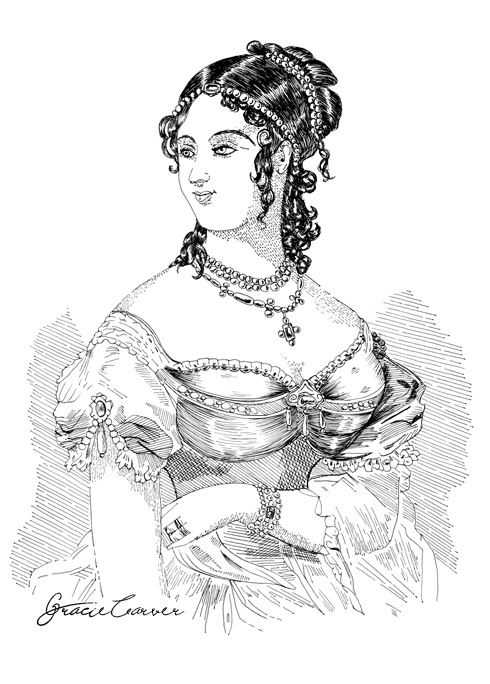 That evening Lytton also presented me to Charles Lamb, ‘Elia’ himself, who Ainsworth already knew. He was not long for this world then, and I am glad I got to shake his hand. Leigh Hunt and his circle were there: Barry Cornwall, the artist Ben Haydon, the academic Cowden Clarke, Wentworth Dilke (who later gave me a terrible review in the Athenaeum), Walter Coulson of the Morning Chronicle, Sir Thomas Noon Talfourd, John Reynolds, and his brother-in-law Tom Hood. Despite the fact that Hunt, Hood and Talfourd had all been closely associated with the London Magazine under John Scott, they obviously did not recall my name, although all were civil enough to pretend that they did. Coleridge was in attendance too, and by the look of it under the influence of at least one psychotropic drug. I had met him at the Fraser’s inaugural banquet, but he did not recall me either.
That evening Lytton also presented me to Charles Lamb, ‘Elia’ himself, who Ainsworth already knew. He was not long for this world then, and I am glad I got to shake his hand. Leigh Hunt and his circle were there: Barry Cornwall, the artist Ben Haydon, the academic Cowden Clarke, Wentworth Dilke (who later gave me a terrible review in the Athenaeum), Walter Coulson of the Morning Chronicle, Sir Thomas Noon Talfourd, John Reynolds, and his brother-in-law Tom Hood. Despite the fact that Hunt, Hood and Talfourd had all been closely associated with the London Magazine under John Scott, they obviously did not recall my name, although all were civil enough to pretend that they did. Coleridge was in attendance too, and by the look of it under the influence of at least one psychotropic drug. I had met him at the Fraser’s inaugural banquet, but he did not recall me either.
I spoke briefly with Walter Savage Landor, who was visiting from Florence. He was well named, for I found him to be both brilliant and incredibly volatile. Fortunately, I had done nothing in print or in person that had offended him, so I just let him rant about his publishers, pouncing on the very occasional gap in his diatribe to moan about my own, for I was beginning to suspect that Colburn had royally robbed me.
‘They always do, son,’ said Landor.
Then there was the author of Vivian Grey and The Young Duke, the Jew, Benjamin Disraeli, who, like me, did not seem to be part of the in-crowd. We got on well, largely through our shared dislike of John Gibson Lockhart, who was fortunately not in attendance. I still viewed him as John Scott’s murderer, even if he did not pull the trigger himself.
And, finally, there were the Garwoods, Mr. And Mrs., patrons of the arts. Garwood was an investment banker, and had made a fortune on the Stock Exchange, enough to buy his wife a place in London Society, and to bankroll half the writers and artists in the room. Mrs. Garwood was the only other woman present, not counting the servants. She looked to me slightly younger than Lady Marguerite, and although not as immediately charismatic as our hostess, she remained a striking woman in her own right, her dark hair, pale skin and full figure all perfectly complimented by a red satin gown. Mr. Garwood was notably older, but did not seem as attentive to his woman as husbands with younger wives usually are. I gathered they were long married, so complacency and familiarity had no doubt set in. He was obviously enjoying being in company, although apparently not mine, and was soon in another part of the room animatedly discussing business and politics with Coulson and Talfourd.
Mrs. Garwood though, was quite taken with me. ‘You must call me Wilhelmina,’ she said huskily, when I took her hand and bowed awkwardly. Rest assured that the irony did not escape me.
After the social preliminaries, there was a sumptuous buffet, the like of which I would formally have only associated with royalty, before an evening of literary readings commenced, beginning with Ainsworth and myself. He chose an atmospheric chapter from the fourth book of Rookwood entitled ‘The Phantom Steed,’ in which, during the Ride to York, Dick Turpin becomes aware of a spectral horseman riding by his side in the midnight mist. Eventually, the apparition resolves itself into the figure of Luke Rookwood, the half-brother and rival of the novel’s hero, Ranulph. They ride together for a while, and then Luke vanishes into the night to resume his by then near-demented and ultimately fatal pursuit of the fair Eleanor Mowbray. It was a fine piece of writing, positively balletic in its breathless and beautiful descriptions of horsemanship, yet also dark and gothic. He was nervous though, and did not do the extract justice. I, on the other hand, had faced much tougher crowds than this.
I had taken a gamble in my choice of readings, based on my knowledge that Lady Blessington’s salons were all-male affairs, with the exception of the lovely hostess herself. Society women tended to shun Lady Marguerite, supposedly on account of her scandalous relationship with d’Orsay, who was the estranged husband of her step-daughter. Having now seen her myself, my analysis was that they were simply jealous, for she was more brilliant and beautiful than the rest of them put together. (They destroyed her in the end of course, but that came later.) It was fair to say, however, that she did have a reputation for being quite broad-minded. I had thus boldly elected to read the chapter that Colburn had made me cut, the one concerning the haunting of Anne Bonney’s private places, and the novel form of exorcism employed by the hero. I had not banked on the presence of Mrs. Garwood, but having no other reading material to hand (it did not occur to me to ask the hostess to borrow a copy of my book), I was committed to the handwritten manuscript in my pocket.
It was subtler than it sounds, for I was no pornographer, at least not in those days. I cleared my throat ostentatiously, as if upon a stage, and began my reading—
Cursing and stumbling, Anne and Bannockburn fled blindly from Blackbeard’s fortress in stolen boots. Every step was a symphony of agony, but despite the ravages of their starved and tortured frames, they ran as if the Great Adversary himself was upon their heels, and, given the Stygian dungeon from which they had lately been liberated, who could say he was not? The local inhabitants of the island, they had learned, believed the dreadful pirate Edward Teach to be a demon, and there was no doubt in Bannockburn’s mind that something alien and terrible now possessed the spirit of the already brutal buccaneer. He gripped the hilt of the sword that he had taken from a poisoned guard, along with his boots, and ran on, following the boy who had aided their escape as he crashed through the leathery jungle foliage that concealed paths which, he claimed, were known only to his family.
The insane flight seemed to have no end to it, until the fugitives knew nothing but the fire in their lungs and the need to keep moving. The boy cut the way forward with a short cutlass, hacking mechanically at branches and vines that flew back like knotted whips and lashed savagely at exposed flesh, but Anne and Bannockburn were past caring.
Eventually, the boy stopped.
Bannockburn was shattered to the point of near insensibility, but as he sunk to the ground he was dimly conscious that they had reached some sort of clearing, for the break in the trees allowed the moonlight to penetrate. So dense was the jungle canopy that he had not realised that night had fallen.
Anne similarly collapsed on the dank and sodden jungle floor, exhausted, and heedless of the loathsome creatures which crawled about her. The boy remained alert, and bid them be silent while he listened intently for the sounds of pursuit above the natural life of the jungle. He stood frozen for several minutes, poised like a gun dog, before he finally relaxed. He took a sip of water from an elaborately carved gourd and then passed it to Anne, who sucked upon it hungrily.
‘Don’t take so much,’ warned Bannockburn, lifting the flask gently from her hands and putting to his own lips.
‘They will not follow us here,’ said the boy, speaking reasonably good, if heavily accented English, learned while serving Blackbeard’s gaolers.
‘You seem very sure,’ said Bannockburn, pushing a hank of his filthy black hair from his eyes. He regarded the young man sceptically. ‘This wouldn’t be a trap would it?’
The boy looked worried and appealed with his eyes to Anne, who was now engaged in shortening her skirt with a long blade in order that she might walk more freely. She tore off the last of the fabric and rose, her pale thighs glistening with mud and sweat above leather boots made long on her. She sidled up to the boy and began toying with his hair. ‘Leave the lad be,’ said she. ‘He knows that if he plays right by us he’ll be well rewarded.’ The boy trembled beneath her touch. ‘Don’t you darling?’ she added, addressing the young man.
‘Madame is right,’ he said, nodding enthusiastically. ‘I help you, for money, yes, and a passage on your ship. We agreed!’
‘That we did,’ said Anne, giving the boy an affectionate pat on the rump.
Bannockburn snorted. It had been the young servant’s liking for Anne that had turned him to their cause, and it was clear what manner of recompense he really desired in return for drugging their guards and leading them to safety. ‘So are we safe now?’ he finally demanded.
‘Oh yes,’ said the boy. ‘They fear this place.’ He gestured towards the clearing ahead, in which a derelict church now became visible, its form distinct from the surrounding jungle by virtue of a strange luminous mist, which hung about the surrounding graveyard reflecting the rays of the moon. ‘Now no more talk,’ he said. ‘You follow.’
Anne crossed herself, and fell into step behind the young man as he entered the ancient cemetery.
‘The tropics, damn them,’ muttered Bannockburn, scanning the surrounding shadows once more before walking into the mist, ‘murderous yet strangely magnetic.’
Lost in the quiet of a forgotten conquistador cemetery and long since abandoned to the jungle, the church had originally been built by the Spanish. The place was shunned by superstitious locals, the boy explained, to the extent that even Blackbeard’s men gave it a wide berth. ‘My grandmother live here,’ he said, opening a heavy wooden door no longer adequately supported by its hinges. ‘No one bother her.’
Except for various undocumented tree frogs and tarantulas, thought Bannockburn with a shudder, as something hard and hairy scuttled into the shadows beyond the door.
‘You are safe here,’ said the boy. ‘Come, I fetch my Grandmother.’
‘In for a penny,’ said Anne cheerfully, disappearing within.
Bannockburn drew his sword and followed her inside. ‘All right,’ he proclaimed to the assassins he remained convinced were lurking in the corners, ‘who dies first?’
At that moment a light was struck, and a voice as dry and ancient as conquistador bones demanded their business. After the darkness of the jungle, the lamp was blinding, but as his eyes adjusted Bannockburn saw no assailants, merely a frail looking woman supported by the young man. The room they were in must once have been the atrium, but it now more closely resembled a barn, strewn, as it was, with straw and palm leaves.
Anne intervened before her companion could formulate one of his customarily inappropriate replies. ‘Two humble fugitives from the castle, madam,’ she said, speaking in French, the language of the old woman, ‘in search of a safe place to lay our heads. Your grandson aided us and brought us hither.’
‘If you are friends of Selvandieu and enemies of the pirate then you are welcome here,’ replied the old woman. ‘Now do you desire rest or sustenance?’
Bannockburn dropped his guard, and his body answered with a great wave of weariness. He could not recall when he had last slept. ‘Rest, please,’ he whispered, leaning heavily against the rough plaster of a cool stone wall.
The old woman directed her grandson to fetch blankets, and he returned with an armful of discoloured linen augmented with sackcloth. He fashioned makeshift beds in the two corners furthest from the door, where he took up station, leaning against the wall with his weapon at the ready. ‘The boy will keep watch,’ said the old woman, taking her leave through the narthex. ‘It is late, sleep now, we will talk later.’
Bannockburn muttered his thanks and made himself a nest in the blankets and straw. He thought it the most comfortable bed he had ever known and, enfeebled by days of torture, he was soon asleep and snoring loudly, as was the old woman, who could clearly be heard rattling the windows of the nave.
Anne was wide awake in the opposite corner. Swearing quietly, she found herself in a heightened state of excitement, incited by the flight through the fleshy jungle, and perpetuated by constant fear of recapture. Unable to sleep in the heat, she cast the damp covers from her body and shivered in the cooling touch of the darkness. It was a deliberately provocative act, for she was aware that the young servant could see her in the moonlight from his position by the door. Anne looked once towards the unconscious Bannockburn, and then beckoned the boy with her finger to come to her. The boy moved to her as silently as a spider, and then shyly, gently and noiselessly, they began to make love.
Their companion did not stir, so the lovers quickly become bolder, more passionate, until Anne approached the moment of ecstasy. She was on the point of surrender when the boy started shouting. Anne raked his skin with her nails in delighted response, all else forgotten, not caring whether Bannockburn heard or not. But it had been a cry of pain not pleasure. As Anne arched her body to receive him further, her lover assumed the most unnatural angle. His shriek of horror was cut short by a sound resembling the rending of damp timber. Blood sprayed from the boy’s mouth, showering the horrified woman. Then he folded the wrong way in half as easily as a dry twig snapping, and was instantly drawn into her nether regions by a monstrous invisible force, like a swimmer suddenly taken by a shark.
Anne screamed, and the wasted Bannockburn was immediately at her side, his sword in his hand. ‘Is Blackbeard among us?’ said he, his eyes searching the dark corners of the room.
‘I fear that he may be,’ whispered Anne, shaking with terror, and pointing to her belly, ‘in here—’
Bannockburn lowered his weapon and smiled kindly. ‘You are dreaming, my girl,’ said he, ‘and it’s no surprise in such a place as this that you would be beset by nightmares.’
‘You don’t believe me,’ she said, quietly weeping.
‘Where is Selvandieu?’ whispered the old woman, joining them. ‘What have you done with my grandson?’
Anne took the old woman’s claw-like hand and stroked it down across her stomach to her mound. ‘He wanted me,’ she said, ‘and he took me, and suddenly he was gone.’ The old woman nodded sagaciously but said nothing. She felt between Annie’s legs like a midwife, bringing her glistening fingers to her face and sniffing.
‘I understand,’ she said.
Preposterous,’ said Bannockburn, a twist to his long features that almost suggested levity. ‘The boy’s just run off, and he won’t be the first you’ve scared away, ’ay milady?’
Anne sat up, her eyes as hard as knapped flint. ‘Do you doubt me, sir? You, who have travelled through time and fought with demons.’
‘Enough!’ said he, once more drawing his sword. ‘It is true that I have seen men and ships possessed by terrible, insane spirits, but never once,’ he continued, pointing the tip of his blade towards her private places, ‘have I seen any such devils residing in there.’
‘Perhaps,’ said the old woman, ‘but I have heard of such things, and I fancy I have fought with many more demons than you.’
Bannockburn returned a petulant sneer, but he held his tongue while the two women conversed in hushed tones, the older of the two carrying out further physical examinations. Being a man of reasonably good breeding, Bannockburn turned his eyes to the far wall throughout the procedure. Finally, the unfortunate boy’s grandmother spoke. ‘It is my belief,’ said she, ‘that this young woman has been cursed, most likely by the vile Blackbeard, who is rumoured to be in possession of Zosimos’ book of magic.’
‘I can confirm that rumour,’ said Bannockburn, ‘for I have seen the vexatious tome with my own eyes.’
‘I had feared it was so,’ said the old woman, ‘look ye here.’ She beckoned Anne lie back and open her legs, indicating also that Bannockburn should pay close attention. No candle was required, for a shimmering universe of distant stars and planets was clearly visible between Anne’s thighs, like a night sky observed through a porthole.
‘Good God,’ said Bannockburn.
‘No, not God,’ said the old woman, ‘something much older. Regardez vous!’ She took his trembling hand, rolled back his sleeve, and inserted his hand, slowly guiding his arm inside up to the elbow. The young woman moaned and writhed in the strangest fashion until, horrified, Bannockburn withdrew his hand as if from a fire.
‘It is deep, no?’ said the old woman.
Shivering violently, Bannockburn held his wrist and flexed his hand, which was coated in a thick layer of freezing slime.
‘More,’ cried Annie.
Bannockburn swore hopelessly. ‘Even she’s not usually this bad,’ he told the old woman.
‘She is possessed,’ said the old woman. ‘Come, there is but little time.’
They tied Annie at her wrists and ankles, and withdrew to a separate room fashioned of coconut wood like a hut built within the nave. The room contained a rustic bed, but the space was dominated by a large sea chest that functioned as a table, bearing a brace of black candles, a weathered Latin bible, and strewn with ancient and arcane objects.
‘You are a witch,’ said Bannockburn.
‘No witch,’ she replied, ‘bokor. I am a healer, you understand, a priestess of the old ways.’
‘Can you heal my friend?’
‘For Selvandieu’s soul I will try,’ she said. ‘The altar still stands,’ she continued, you will know where.’ Bannockburn nodded, for in his experience one church, consecrated or otherwise, was much the same as another. ‘Collect the girl and meet me there,’ commanded the woman, gathering various items from the top of the chest. Bannockburn reached for one of the black candles, but the woman stayed his hand. ‘No,’ said she, lighting a crude oil lamp, ‘take this instead.’
They left the room together. Bannockburn found Anne where he had left her, moaning and writhing on the earth floor. ‘Give us a touch darlin’, I’m dying for it,’ said she, regarding him with unnaturally bright eyes.
He ignored her with difficulty, and keeping her bound he hoisted her over his shoulder. It was not her curses that troubled him as he carried her to the altar, but her unholy laughter.
The bokor was waiting, now clad in a long robe of dark silk and illuminated from behind by the black candles from her room, which now adorned the altar. ‘If the girl will not keep silent,’ she told Bannockburn, ‘then gag her.’ Anne adopted the look of an ill-tempered child, but she held her tongue. ‘You must keep her away from me while I perform the ritual,’ said the bokor, letting the robe fall from her shoulders to reveal a cadaverous physique, her bare skin like ancient leather. Anne snorted but said nothing. Bannockburn looked around until he located a solid pew among the rotten wood of the nave; there he deposited his prisoner, slumping down beside her with a complicated and obscene oath that at once conveyed anxiety, rage, and complete confusion. Trussed and snake-like, Anne attempted to rub her body against him, but he pushed her away and moved to another seat, kicking a path through the rubble of fallen masonry and animal bones that littered the floor of the nave in mockery of its original function.
Alone on the bema, the old woman began the performance of an elaborate ritual dance, moving to a rhythm known only to her and displaying an athleticism impressive for her years. As she spun crazily around the altar, Bannockburn fancied he was dreaming, for he perceived a much younger woman now before him. Her form had grown taller, and was now as smooth and tight as oiled ebony. Her lips were full, her dark eyes clear and vivid, and her wild hair as black as midnight. As she continued her gyrations, Bannockburn was aware that he was becoming somewhat invigorated by the spectacle, and he shifted uncomfortably upon his seat, coughing to conceal his embarrassment.
‘Bitch,’ muttered Anne from behind him.
All at once the dancer stopped, and walked towards Bannockburn. He did not feel able to stand, so he found his face level with her belly, from which radiated a tremendous heat. ‘Bokar?’ he ventured, looking up shyly.
‘Not bokar,’ said the goddess before him, ‘loa,’ as if that explained everything. Bannockburn swallowed dryly. ‘I am Erzulie,’ said the mysterious young woman, ‘a spirit of love called forth to aid your friend.’
‘Thank Christ for that,’ muttered Bannockburn.
‘Oh no,’ said Erzulie, coyly, ‘I come not from him.’ Bannockburn decided not to ask, and the spirit continued, her hands on her hips and as naked as polished stone. Bannockburn was having trouble meeting her gaze, but Anne looked on with hungry eyes. The loa smiled at her but spoke to Bannockburn. ‘The Devil Pirate,’ she said, ‘has used the book to open a portal to a realm of ancient and mad gods who claw at the boundaries of your world, and will bring about Armageddon should they ever break through in force. One such demon, I assume, was close enough to the mystic orifice to grab the unfortunate boy.’
‘That sounds plausible,’ agreed Bannockburn.
Erzulie’s expression was, for a moment, confused. ‘I must confess some puzzlement,’ she conceded, ‘as to the location of the rift. It is more conventional among wizards and witches to employ magic doors or mirrors.’
‘Yes, I was wondering about that myself,’ said Bannockburn.
‘Withal, her salvation may well be in the location of the rift,’ concluded Erzulie, selecting a long bone from the ground and using it to draw a wide circle upon the altar, marking a star within it with five straight strokes, and placing a candle at the points which Bannockburn guessed were north and south. She bade Bannockburn lift Anne into the circle, and then snapped the girl’s bonds with her fingers as if they were cotton. ‘Don’t move,’ she commanded. Anne complied without a sound, lying back on the cool granite and letting her legs fall open, her eyes moving between the man and the goddess before her.
‘What now?’ said Bannockburn.
‘We close the portal,’ replied Erzulie.
‘How?’
In reply Erzulie grabbed Bannockburn between his legs. He felt himself stirring once more, but, being at heart a gentleman, he tried to think of things from his own time that would always dampen his ardour, such as pastoral verse, the rules of cricket, the novels of Mrs. Radcliff, and Pitt’s strategy for reducing the National Debt. But nothing worked, and when the loa squeezed him harder a sigh of pleasure escaped his lips, which was then echoed by Anne. ‘Impressive,’ said Erzulie, ‘for a human.’ Bannockburn decided to take this as a compliment while there was still some ambiguity in the statement and grinned proudly. ‘But not quite enough for demons,’ continued the loa, gesturing mesmerically with long fingers while murmuring mysterious incantations in a language that made no sense to him.
Bannockburn became uncomfortably aware that part of him was growing, and pushing against his garments with the most exquisitely intolerable pleasure.
‘Now you are ready,’ said the loa, tearing away Bannockburn’s breeches as if removing the wings from an insect, and tapping his monstrously engorged member with a long index finger. ‘Take her now!’ she commanded.
With difficulty, Bannockburn regained his composure, as much as was possible under the present circumstances. ‘Madam,’ he said, in faltering tones, ‘I will do no such thing.’
The loa raised an eyebrow.
‘Miss Bonney and I have never been intimate,’ continued Bannockburn in desperation. ‘And neither is it seemly to perform an act of such gross indecency in a holy place, and in the presence of an elder, especially a woman, even if she is a foreigner.’
‘You would prefer that I was male?’ asked Erzulie, quizzically.
‘No I would not!’ bellowed Bannockburn, backing away, appalled.
But Anne could wait no longer. She disobeyed the loa by jumping down from the altar and giving pursuit, chasing the helpless Englishman around the church until she grabbed him by the vestibule. She led him back to the altar like a dog, by means of his most prominent appendage.
‘Her only hope,’ explained the loa patiently, ‘is to reach of frenzy of passion of such intensity that it will shake the fabric of time and space and, hopefully, collapse the portal before Satan’s legions are unleashed.’
Anne climbed back onto the altar, keeping a tight grip on her man. She lay back and pulled him on top her, holding on with both hands.
‘If you fail,’ said Erzulie, addressing the prostrate Bannockburn, ‘demons will come forth like an infinite army of deformed and bastard babies.’ He stared back over his shoulder in horror. ‘Needless to say,’ she continued, ‘your friend will not survive the birth in this case, and neither will you.’
‘As a gentleman, then,’ he replied, ‘I cannot in good conscience refuse.’
‘Good boy,’ said the loa, giving him a hard slap across his raised buttocks.
As Anne took him inside, the loa began to chant in a strange and extrinsic tongue before the altar.
It was an epic copulation, and as the couple built to a frenzied climax, the dead conquistadors rose reeking from their graves, and entered the church, surrounding the altar in silence. The lovers paid no heed, and as Bannockburn thrust deeper into the terrible black hole, the walls of the church itself began to shake as if in the grip of an earthquake. Ancient plaster and giant spiders fell from the roof upon the careless lovers, and the skeletal conquistadors began to crowd around the loa, caressing her at first, but then clawing and rending. She began to laugh madly, and at the point when the revenants ripped the body she had possessed limb from limb the lovers exploded into one another. The bloody conquistadors fell as if shot, corpses once more, and Bannockburn and Anne were suddenly alone in the church, thirsty, out of breath, a touch peckish and surrounded by body parts. The spell had been broken.
Bannockburn rose, brushing dust from his hair and shoulders, and looking for his clothes. ‘We must leave this dreadful place at once,’ he said.
‘Shut up,’ replied Anne, pulling him back, ‘and do it to me again.’
On reflection, perhaps the episode was not that subtle. My audience was quite hot and bothered by the end of my reading, but the majority had laughed in the right places, and been suitably horrified by the violence, although I would argue that there are passages in Rookwood that are worse, such as the scene in which someone brings Luke Rookwood’s dead mother to his wedding. Blessington and d’Orsay both looked at one another and roared with obscene laughter at the end, while Mrs. Garwood just stared at me in a most unseemly manner. She was quite flushed, and in the tight red satin she resembled a large and exotic fruit, fleshy and slightly over-ripe. I met her gaze, briefly, and she did not look away. It would seem that she was not, perhaps, quite as unattainable as miladi.
‘Who says history is boring?’ said Ainsworth, getting a good laugh.
Best of all, Coleridge began to applaud with great enthusiasm. ‘Follow that, my friend’ he said to Hunt, whose turn it was next to read, ‘if you can.’ Everyone laughed with him, including, thankfully, Hunt.
‘I would rather face a regiment of French cannon,’ said he, causing d’Orsay to look quite put out. ‘Let’s have a toast before I try.’ Our glasses were hastily charged and raised. ‘To Jack and Will,’ cried Hunt, and all said, ‘Aye!’
I had arrived. And in damn fine style, I thought.
END OF BOOK ONE
You can buy the complete (3-part) Memoirs of a Penny-a-Liner here, £2.99 on Kindle and £12.99 paperback

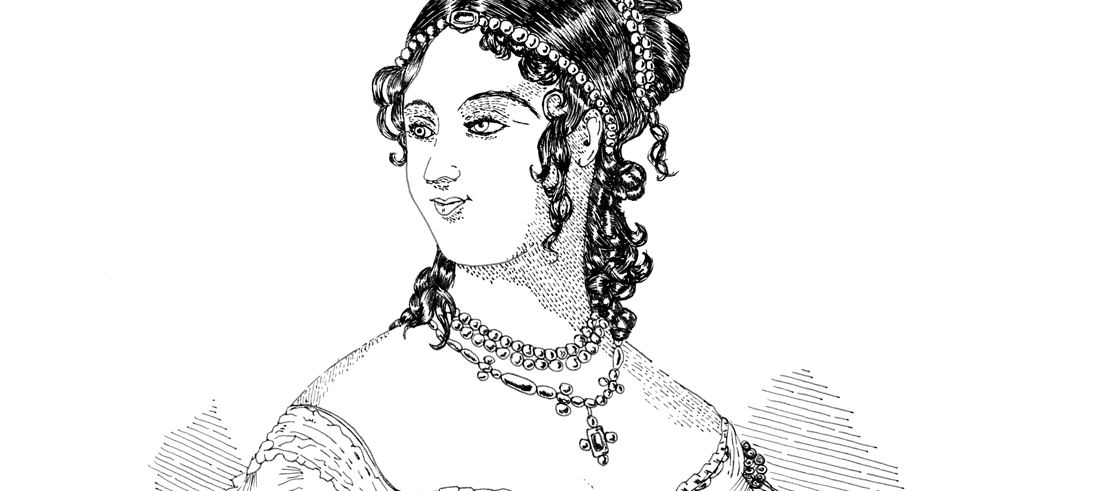
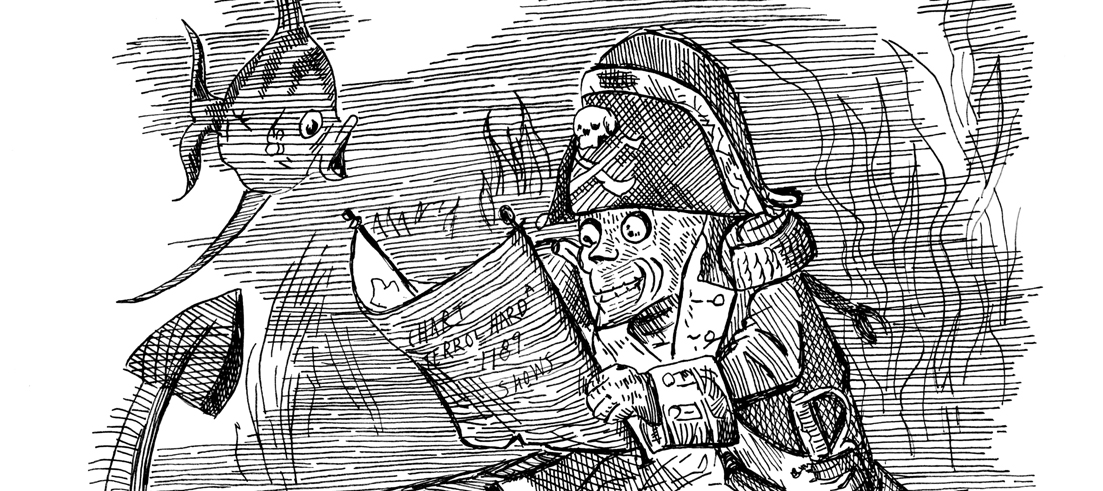
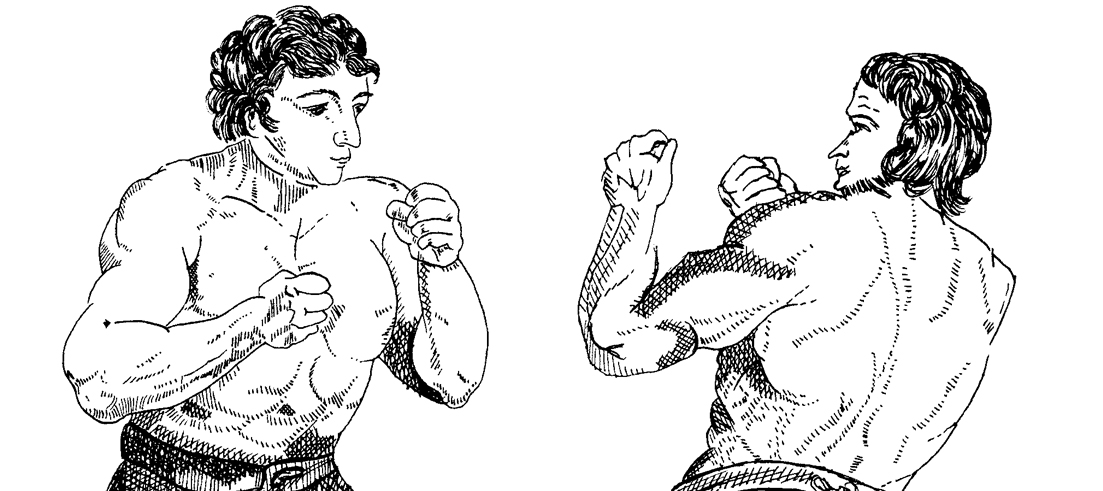
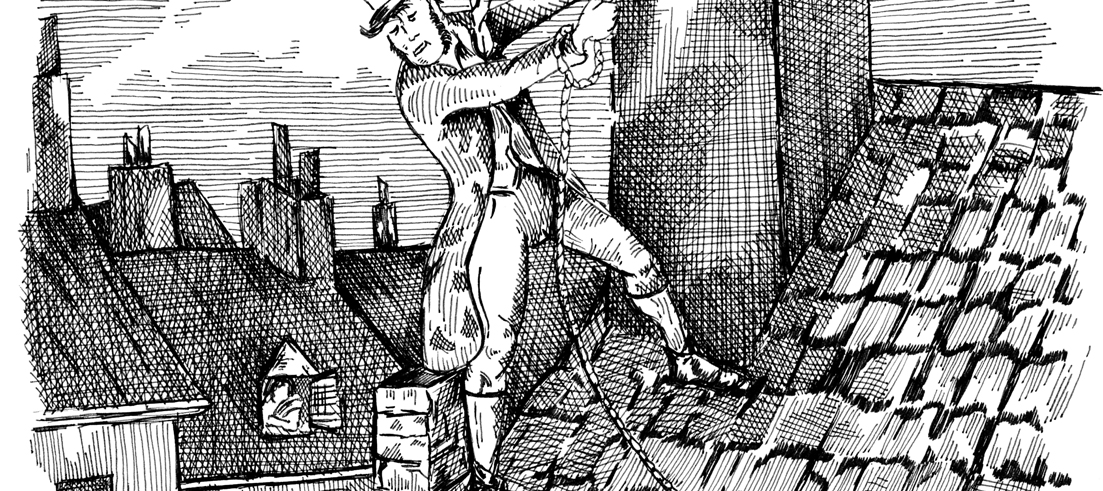
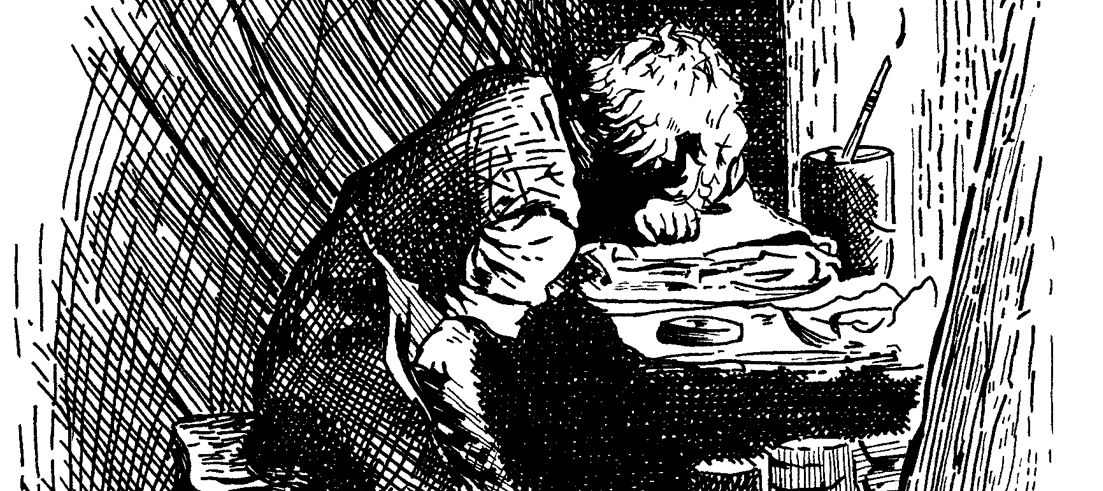
No Comments